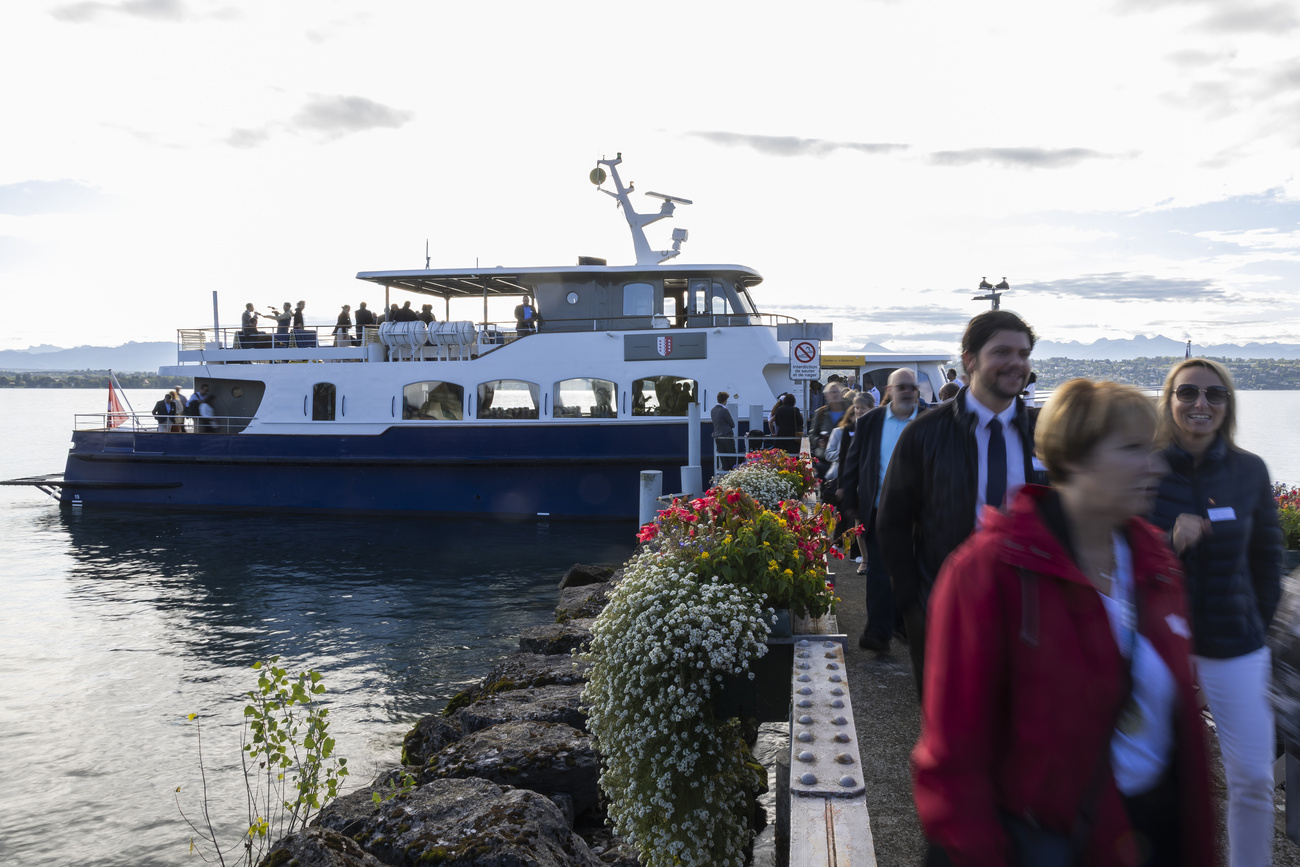
Boat services between Switzerland and France to be reduced from 2026

Ferry services run by the General Navigation Company (CGN) between Switzerland and France on Lake Geneva are set to be scaled back from 2026. On Friday morning, canton Vaud and neighbouring French regions confirmed they have signed a new cross-border agreement, due to take effect on December 14, 2025.
+Get the most important news from Switzerland in your inbox
Some cross-border boat routes on Lake Geneva will see reduced services from next year, with the Évian–Lausanne line set to lose weekend sailings and have fewer boats operating overall. The biggest cuts will hit the Lausanne–Thonon-les-Bains route, where crossings will be halved and no boats will run at weekends.
The Yvoire route will also see fewer sailings, but peak-time services will stay in place to ensure cross-border commuters can still get to work.

More
Switzerland and France poised to strike water sharing deal
Compromise reached with France
The adjustments follow the renewal of a cross-border agreement between canton Vaud and French local authorities. France had refused to extend the deal under its current terms, which involved splitting costs equally.
After months of negotiations, both sides have agreed to continue sharing the costs of services not covered by ticket sales, but with a scaled-back timetable.
Concerns over impact on leisure travel
“Leisure travel could take a hit,” warns Romain Pilloud, head of the Vaud branch of the Transport and Environment Association (ATE), speaking to Swiss public radio, RTS. “Leisure journeys still account for a lot of movement, so we’re likely to see more people switching from boats to cars, especially at weekends,” he said.
Pilloud says the move sends the “wrong message, especially given the lack of infrastructure to complete a full public transport loop around the lake. We should be going in the opposite direction,” he said, urging authorities to rethink the decision.
Translated from French with DeepL/sp
We select the most relevant news for an international audience and use automatic translation tools to translate them into English. A journalist then reviews the translation for clarity and accuracy before publication.
Providing you with automatically translated news gives us the time to write more in-depth articles. The news stories we select have been written and carefully fact-checked by an external editorial team from news agencies such as Bloomberg or Keystone.
If you have any questions about how we work, write to us at english@swissinfo.ch.

In compliance with the JTI standards
More: SWI swissinfo.ch certified by the Journalism Trust Initiative



























You can find an overview of ongoing debates with our journalists here . Please join us!
If you want to start a conversation about a topic raised in this article or want to report factual errors, email us at english@swissinfo.ch.